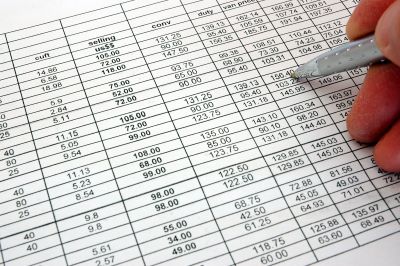Handling Tenant and Owner Funds
Posted by Jordan Muela in Property Management Articles Owners entrust their property manager with more than just their physical assets. Property managers handle rental income, reserve funds, security deposits, and write checks on the owner’s behalf. To function properly, this relationship requires trust, transparency and accountability.
Owners entrust their property manager with more than just their physical assets. Property managers handle rental income, reserve funds, security deposits, and write checks on the owner’s behalf. To function properly, this relationship requires trust, transparency and accountability.
Here's a list of issues to review and questions to ask the property management companies you interview:
Payment to owner
- What day of the month do they mail checks to owners?
- Will the check be for that month, or will the management company hold back a month?
- It’s better to have your rental revenue is in your bank account collecting interest as soon as possible rather than sitting your manager’s bank account.
- Do they provide direct deposit?
Taxes
- Will the management company provide you with an IRS-1099 and a summary profit and loss statement for tax purposes?
- Are they able to advise you on tax deductions?
Accounting
- Do they keep detailed records and documentation?
- The goal is to provide a clear audit trail for all funds for each property. Look for a company that keeps and is happy to provide you with copies of all invoices. This will also help with taxes and legal situations that arise.
Reporting
- How often do they send out reports? When are they sent out?
- Monthly is standard; there's no reason to deal with a company that doesn’t provide income/expense statements each month.
- Will you be able to view reports online?
- This convenience increases transparency and saves you time.
- Request to see a sample report
- Reports are your only window into the performance of your investment and it is imperative that you determine BEFOREHAND that the reports they provide will meet your needs. A sample report with dummy, or no data, is fine. If they are unwilling to provide you with this, consider moving on.
- Reports should be easy to read and show collected rent, deducted property management fees, itemized maintenance, net dollar amount, etc.
Security deposits

Security deposits are an important tool for motivating tenant care and recouping losses due to tenant damage, but if they aren't handled correctly you could lose your right to keep any portion of the deposit or worse, end up owing your tenant several times the deposit amount. Ask any prospective property management company the following questions:
- How do they handle security deposits?
- State laws vary in this area; what's important is that the firm understands the law and abides by it. In states where the law dictates that the funds be held in a non interest bearing trust account, you may run into a management company that reasons this is never checked and its ok to keep them interest bearing accounts. Part of the property managers job is to shield you from legal liability by acting in accordance with all relevant laws, so you should be wary when a prospective manager tells you they use legal short-cuts. Lastly, if your state allows landlords to hold and use the funds at their discretion, consider that using the funds early will add the refund to the other expenses you experience after a vacancy (repairs, cleaning, advertising, etc.). Leaving that cushion in place will smooth out those costs.
- How much is collected?
- The security deposit is all you have if things go bad and a larger amount means more cushion. States where this is regulated have a MAX that varies between one and three months rent. That said, between half to a full months rent is typical. Tenants with a questionable financial record may be required to pay more (low credit score, foreclosure or bankruptcy on record).
- Do they accept personal checks for the security deposit?What if the check bounces? This is not a good idea and the deposit should be cash, a money order or a cashier’s check.
- How quickly do they send out refunds?
- They should send the tenant a report with the refund or itemized deductions within the number of days allotted by your state.
- What is their list of conditions and deductions for refunding security deposits? How often do they go to small claims court over security deposits?
- The refund and deduction process should be designed to motivate good tenant behavior, not to make extra profit. Avoid property managers who are cavalier in making deductions. Make sure they have reasonable conditions and deduction amounts as well as provide good itemized documentation of damages and repair costs. These things help prevent trips to small claims court, or if you do go, help make sure you don't wind up on the wrong side of a judges verdict.
Miscellaneous
- Do they make payments for owners (mortgage, insurance, property taxes, hoa dues, etc.)?
- Will the manager be authorized to sign checks on the owners account? If so, what types of controls are put in place to prevent misuse of funds or outright embezzlement?
- How quickly do they pay vendors?
- Do they have vendors perform work and then not pay them until rent is collected or the unit is rented? Keeping vendors waiting for long periods of time strains the relationship and forces the vendor to raise their prices to compensate for the delay’s negative impact on their cash flow. A properly funded reserve should prevent this from being a problem.
- Do they prevent the co-mingling of funds among the properties they manage?
Given the fiscal responsibility that a property management company has, it is a good idea to raise these questions during the interview process and make sure you understand their approach. Next, we'll look at the management company's policies regarding setting and collecting rent.
Next: Setting and Collecting Rent.
Back to Hiring a Property Management Company - The Complete Guide.
Find a Property Manager
Search our directory of local property management companies to find property managers near you.
Are you a quality property manager?
Popular Articles
- Property Management Fees - Part I
- Property Management Services - A Complete List
- Hiring a Property Management Company
- What Are The Benefits of Using a Property Management Company?
- Property Management Fees - Part II
- Contract Termination
- Handling Tenant and Owner Funds
- 11 Questions for Determining if You Need a Property Management Firm
- What to Look for In a Property Management Contract
- Property Maintenance and Repairs

